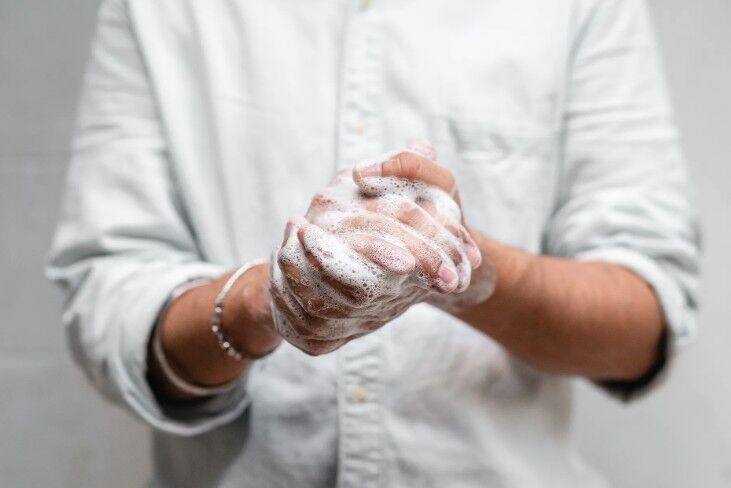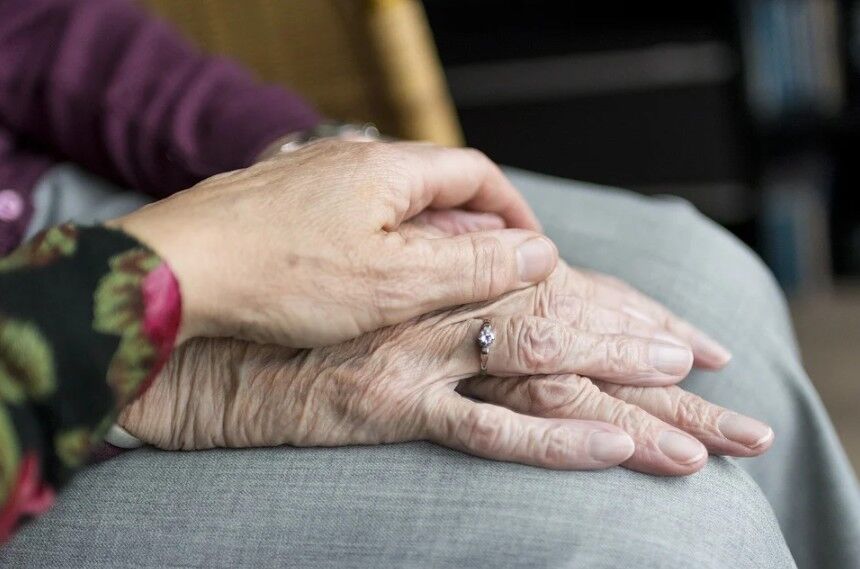Among people who are the most susceptible to viral and bacterial diseases caused by germs, the elderly are some of the most obvious ones. Even for healthy adults, it requires special attention to one’s healthcare and living habits to make sure that the body stays safe from harmful bacteria. As you age, this task becomes more and more complicated, and, understandably, the people who are in their 60s and 70s require special attention.
Germs are one of the main causes of infection. Most germs are spread through the air, while some are transmitted from person to person due to contact with something that has germs on it. These germs can be diverse and have symptoms ranging from mild to severe, depending upon the type of the germ. Thus, it is crucial to protect yourself and others from such microorganisms.
According to the CDC (Centers for Disease Control and Prevention), in the past decade, 35.5 million people got infected with seasonal influenza each year in the US alone. As expected, besides people with special health conditions, individuals aged more than 65 were the most likely to contract the infection. The percentage of victims who showed more severe symptoms was also significantly higher in the elderly as compared to the younger victims.
Thus, it goes without saying that as the body grows old, several physical and mental issues need to be addressed. With old age, the body’s immune system becomes considerably weaker and makes it difficult for it to fight against infectious intruders. Besides that, due to the decreasing mental performance, it might feel tiresome to take all the necessary precautions. Read the passage below to get to know how to keep the elderly safe from germs.
Why the Elderly Are Easily Affected by Germs
Older adults have a high tendency to catch diseases. Why is this? There may be several reasons. Let us explore two of them below.
- Weaker Immune System: Your immune system is what we collectively refer to the parts of the body responsible for fighting germs. As you age, your immune system starts to weaken and makes you prone to diseases that would not have affected younger individuals.
- Social settings: Most older adults in the US are confined to a single location, like their houses or nursing homes. This drastically increases the chances of catching viruses. As the elderly are already susceptible to diseases, staying in the same room or building makes the diseases spread faster.
Many elderly catch diseases from their caregivers or their friends and family. One reason for this is they frequently require physical assistance in many tasks, which increases the odds of germ transmission.
Understanding an Infection
To successfully battle germs, it is essential that we first understand the nature of germs and how they spread.
Germs, in the general sense, mean anything that can cause the body to become sick. There are two major types of germs. These are pathogenic (capable of causing disease) viruses and bacteria. Both of these can be equally dangerous to the human body. Most of the germs are contagious, that is, they can easily be transmitted from one person to another.
There are several ways germs can be spread, such as,
- By making skin contact: Germs can rapidly get attached to the skin and remain there for hours unless they are washed away. So, whenever you make physical contact with another individual who is carrying germs, you expose your body to the risk of catching germs.
Physical transmission mostly occurs because of hand-to-hand touching, but it can also happen due to contact made from kissing or hugging. In the case of older individuals, it can be due to them kissing the hands of others and directly exposing themselves to harmful germs.
- Through non-living objects: Depending on the type, germs can get stuck to a surface from a few minutes to several days. Things like tabletops, shelves, books, and exceptionally moist areas like kitchen sinks and dewy surfaces are all the perfect spots for pathogens to live on.
Besides that, food and drinks are also potential sources of germs. Especially food that is left in open and exposed places for an extended period is more prone to be contaminated with bacteria and viruses.
- Through the air: The most common cause of germs entering your system is transmission through the air. When an infected person sneezes, coughs or talks, they let out germs into the air that can travel around and be inhaled by unmasked individuals.
Airborne germs are capable of staying in the atmosphere for hours at a time and even covering long distances in windy areas. Asides from being inhaled, they can attach themselves to your skin or other objects that you may make physical contact with.
How Can the Elderly be Protected
Just as you need to pay attention to your healthcare, it is equally important, if not more, to pay attention to that of the older members of our society. It is highly probable that they may not be wholly up to the task, either because they tend to be forgetful or because they aren’t capable enough.
Let us take a detailed look at some of the tips that should be followed when concerned with the well-being of senior citizens.
- Having a healthy diet: As mentioned earlier, a weak immune system is a significant factor in the elderly catching germs. Therefore, they must have a perfect dietary plan and convenient eating essentials. It is advisable to see a doctor and prepare a healthy eating plan.
However, in general, vegetables, whole grains, fruits, and protein sources like lean meat and eggs are enough to provide the essential nutrients the body needs.
- Taking the required medications: It is quite common for people in their old age to miss certain medications, either due to lack of interest or forgetfulness. This can weaken their immune response further, and therefore must not be overlooked by their caretakers or family members.
In addition to that, vaccines are a great way to ensure that seniors can remain protected from specific disease-causing germs.
- Staying clean: This one might sound obvious, but uncleanliness is one of the most common causes of diseases and infections caused by germs. Germs enter your system through the nose or mouth when you touch either of them using your hands or forearms.
Due to this, make sure that the elderly get to properly wash their hands before eating or drinking, after using the toilet, after coughing or sneezing, and after coming in contact with any potentially germ-infested surface. Teaching the elderly the importance of not touching their faces can also be very helpful.
- Getting rest and physical activity: As the body ages, it is even more critical that it gets plenty of restful sleep, as well as adequate exercises. Exercises may include daily walks, restorative yoga, and swimming, which make sure that the immune system stays stable.
- Social Connectivity: A weak immune system can also be attributed to mental health issues. Seniors may fall prey to depression and loneliness, and even feel high levels of stress unless you communicate with them and provide proper attention. Due to this, you need to make sure that their mental needs are met so they can always feel at ease and know that they have a valuable social status.
Conclusion
The elderly have more or less the same physical and mental needs as those of a young person. However, due to natural circumstances, they are unable to take care of those needs on their own. This makes them an easy target for germs and diseases. That’s where you need to take responsibility and make sure that they continuously get an ample amount of healthcare and notice.




